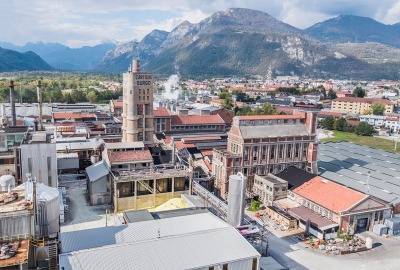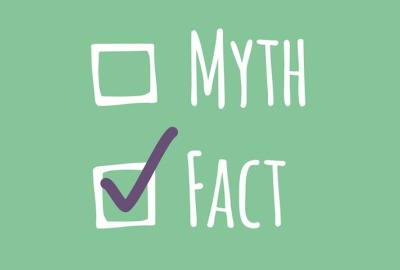White fibrous krofta, from waste to resource
The Tolmezzo paper mill is owned by Mosaico, the Burgo Group company that develops and markets special papers. The plant produces uncoated wood-free papers for offset printing, envelopes and office papers, MG light weight paper for food packaging and technical applications.

Following the principles of circular economy and through the recovery of supply and processing residues, some saleable by-products are obtained at the Tolmezzo plant: sawdust, from the screening of chipped wood, and bark, obtained in the occasional process of debarking, are reintroduced on the market as materials for the production of pellets or animal bedding.
Also the white fibrous krofta is a direct by-product of the paper production process.
The Tolmezzo production cycle can recover, by reintroducing it into the flow, most of the material derived from the water flotation system of the two paper machines. However, a non-recoverable portion was, in the past, discarded as waste. The detailed analysis of the fibrous residue has now made it possible to also recover this portion, called the white fibrous krofta, previously considered as waste.
The white fibrous krofta has, in fact, all the characteristics to be considered a by-product, a material originating from a production process where the primary purpose is not the production of this substance, the use of which is:
- direct, without preventive treatments other than normal industrial practice;
- legal, with no negative impact on the environment or human health;
- certain, by the manufacturer or a third party.
The certainty of use is guaranteed by the collaboration that Mosaico has established with another paper mill operating in the same industrial district. This paper mill buys white fibrous krofta from Mosaico. The product, having characteristics similar to virgin cellulose, is placed in the client’s production cycle without any preliminary treatment. The by-product is thus more efficient than waste paper which, on the other hand, requires a process of separation of residual materials (for example tetra-pack, plastic, aluminium) which may still be present, albeit in very low percentages. The white fibrous krofta is ready for use and does not need further preparation: this directly translates into a reduction in processing times and energy consumption. It is therefore quite understandable that the client company has showed great interest and has renewed the order for the supply.
Economic benefits and environmental sustainability
The appreciation of white fibrous krofta as a by-product has allowed Mosaico not only to save the costs associated with the management of this residue as waste, but also to earn from its sale.
The advantages are also clear from an environmental point of view, for the two companies involved and the entire community, as underlined by the Rapporto Rifiuti Urbani Friuli Venezia Giulia (Friuli Venezia Giulia Urban Waste Report, 2021 Second edition) drawn up by ARPA Friuli Venezia Giulia: "not only has there been a reduction of waste production, but also a lower environmental impact associated with their transport: the destination plant of the by-products is only 18 km from the production plant. "
Cost optimization, waste reduction, energy saving and reduction of CO2 emissions: the Tolmezzo plant really proves to be a virtuous example of circular economy, while the paper industry confirms, beyond commonplaces, its commitment to environmental sustainability. The push for a correct policy of reuse and recycling of materials, along with the new design of eco-friendly packagings and products, offer actual opportunities to transform an industrial plant into a small mine of resources, and to positively affect society and the environment.

When it comes to print and paper sustainability, it is important to distinguish reality from everyday life. The European paper industry is a world leader in sustainable sourcing, renewable energy and recycling rates.
Find out more
